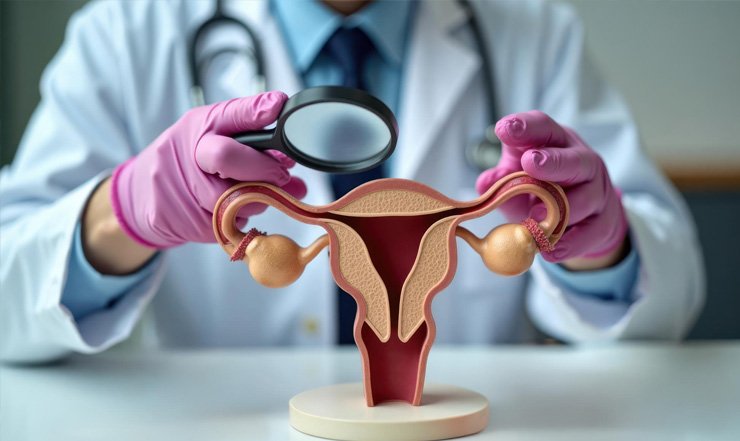Health in women includes a plethora of issues that are often overlooked or misrepresented. Many women think of their reproductive healthcare as the necessity of yearly, or at least frequent, gynecologic / reproductive health examinations, but the necessity goes beyond Pap smears and is very often neglected. Here in this, we will address the reasons for having yearly gynecologic examinations; overall health, investigation of pelvic pain issues, options for birth control, etc.
What is a Gynecological Exam?
A gynecologic exam is a full examination of a woman’s reproductive health. In a gynecologic exam the typical activities are a physical examination, a Pap smear (if indicated), discussion of normal and abnormal menstrual cycles, sexual health, and anything else the patient feels is inaccurate or contributing to a problem. Many healthcare professionals support the safety and benefit of combining annual, or regular, gynecologic examinations with annual preventative healthcare examinations for all stages of a woman’s health.
Understanding the Importance of Regular Exams
1. Comprehensive Health Assessment
Routine gynecologic exams help healthcare providers review a woman’s complete health. This involves looking for signs of conditions such as polycystic ovary syndrome (PCOS), endometriosis, and ovarian cysts. The earlier these are detected, the better health care options can be sought, resulting in better health outcomes.
2. Addressing Pelvic Pain Causes
Pelvic pain as a whole is a common problem faced by women, and every woman will likely experience pelvic pain in some form at some point in her life. It is important to determine the cause of pelvic pain to aid in treatment for the condition. After providing a thorough history, a healthcare provider can investigate the cause of pelvic pain during the gynecologic exam. The cause of pelvic pain can be identified as fibroids, endometriosis or some other condition. Proper timely evaluation can greatly improve a woman’s quality of life with respect to pelvic pain as well as prevent any complications.
3. Birth Control Options
Selecting an appropriate method of birth control is an important component of women’s health. Regular visits for a gynecologic exam allow for conversation about various methods of birth control approved by the medical community that help couples or individuals plan their families; these include hormonal methods and non-hormonal methods. In health care, it is the responsibility of the medical team to help women find the right programs or products that best correspond with their lifestyle and health requirements to allow them to effectively and safely plan their family.
4. Menopause Relief
Simply put, menopause is a natural occurrence for many women where they can experience a range of symptoms, including but not limited to hot flashes, dizziness, forgetfulness, sleep disturbances, and mood swings. You should discuss these symptoms with your healthcare provider, as well as any options to find relief. Your healthcare provider may recommend lifestyle changes, hormone replacement therapy, or consider other options to relieve your symptoms.
5. STD Screening
Sexually transmitted diseases (STDs) can have serious consequences to your health if left untreated. Having an exam at your gynecologist will include screening for sexually transmitted diseases, and is an important component of preventive health care for sexually active women. Early diagnosis and treatment of STDs can prevent considerable health challenges down the road, such as infertility and chronic pain syndromes.
The Role of Preventative Care
Preventative care is a fundamental aspect of women’s health. Routine gynecological exams are an early intervention, allowing issues to be identified before they become serious. By keeping up with gynecological exams women can assert control over their own health and well-being.
6. Building a Relationship with Healthcare Providers
Repeatedly visiting with a gynecologist will help create trust in the relationship between patients and the health care provider. Once patients feel comfortable, they may be more likely to discuss sensitive issues related to sexual health, mental health, and other potential concerns related to pelvic pain and other health care issues.
7. Keeping Up with Health Guidelines
Health recommendations for women will continue to change over time. Routine gynecological exams will ensure women remain up-to-date on the relevant health advice being given. Also, examinations will provide an opportunity for updated information on screenings, guideline recommendations, and vaccinations related to women’s health.
Conclusion
Women’s health is a complex matter and requires regular monitoring and care as needed. Gynecological exams are an important part of understanding the causes of pelvic pain, exploring birth control options, managing menopause relief, screening for STDs, and generally prioritizing one’s health so that women do not have to delay getting care. By prioritizing gynecological exams, women are curating preventative care, which will support their continued health and wellbeing.
For comprehensive women’s health checkups and preventive screenings, including well-woman exams beyond the Pap smear, consult the Obstetrics & Gynaecology Department at Amrutha Hospital, Nelamangala, Bangalore.

